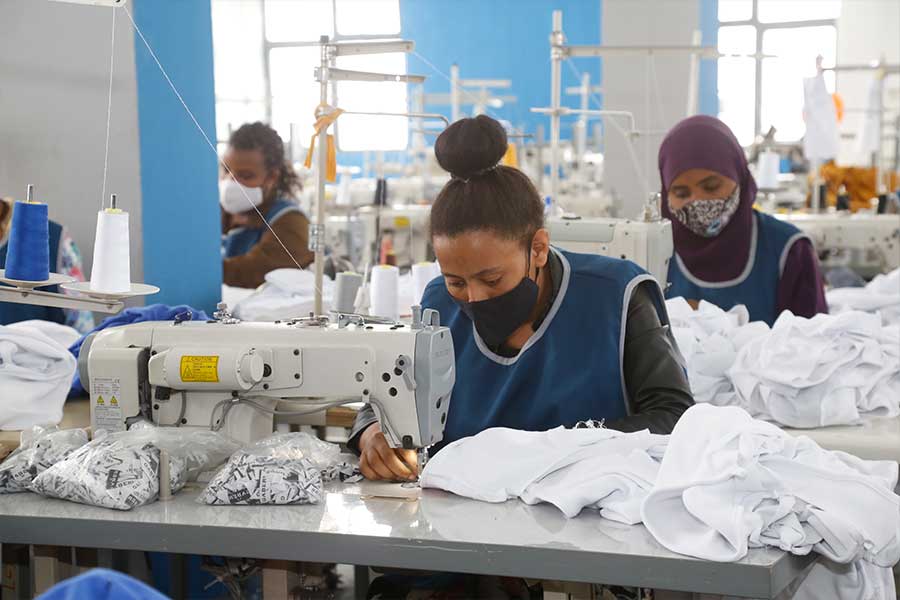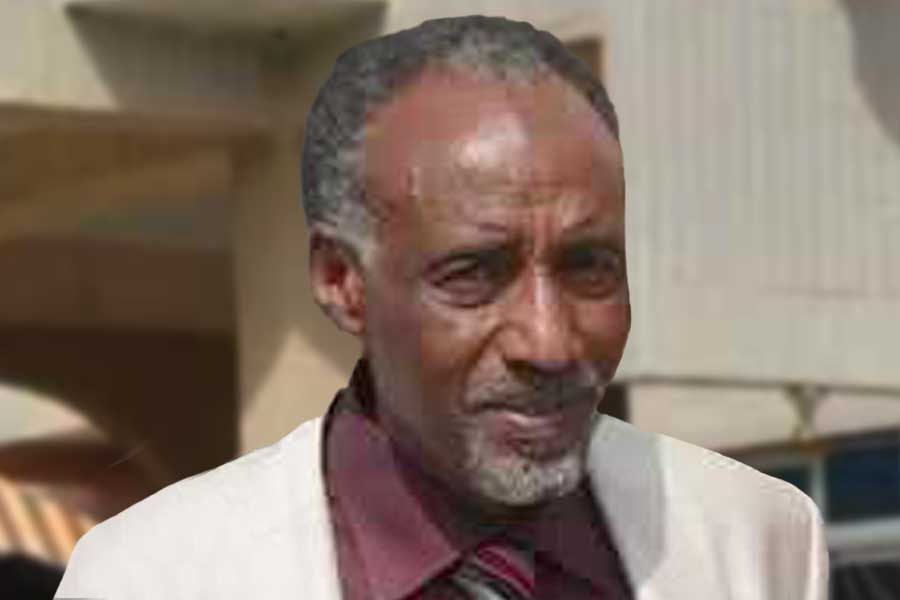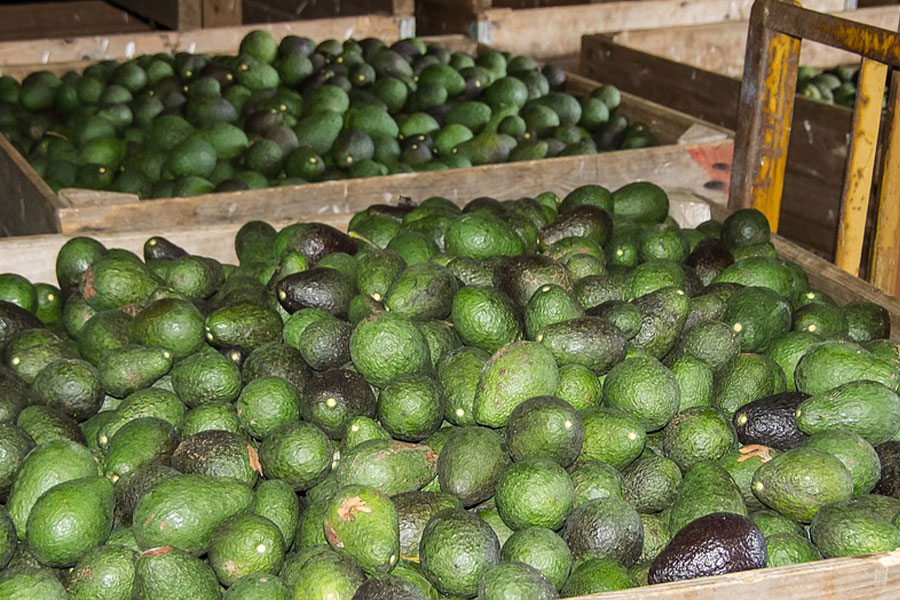
Featured | Oct 17,2020
Yohannes Getachew, a public servant in his 40s, looks forward to the weekends when most of the nation’s newspapers and magazines come out. He says he prefers reading newspapers, instead of social media posts or online publications, because he believes there is more trust and integrity in print media.
On weekends, he makes his way to the Arat Kilo roundabout to find Debebe Eshetu, a newspaper vendor for the last 15 years who goes by the nickname Buchera Gazeta.
Debebe sells newspapers between the price range of two Birr and 13 Br and magazines between 15 Br to 20 Br. His profit margin from the sale of newspapers and magazines is between one Birr and 1.50 Br.
“I prefer lending [renting] them for a short time and charging a small fee. I get two Birr a piece for each reading,” he says.
His customer, Yohannes, also rents the publications. From the available newspapers and magazines, he picks what catches his attention and reads before returning it to the vendor.
“I am not loyal to any brand,” he says. “I roughly go through their cover pages and contents and then choose to read what appeals to me.”
For the past few months Yohannes has been in luck, since the number of publications has risen, affording him many choices.
“I used to be limited to reading few newspapers, unlike the loads of choices I have now,” he says.
In the over eight months that Prime Minister Abiy Ahmed (PhD) has been in office, 21 new publications acquired licenses, according to the Ethiopian Broadcast Authority. This led to November while saw the publication of 11 new private newspapers and 13 private magazines.
Addis Zeyebe is one of them. Published by Seba Dereja Media & Communications Plc, it is a weekly current affairs paper with a focus on Ethiopian urban community. After half a year of online presence, the paper circulated its first edition six weeks ago.
“We are definitely benefiting from the new political reforms, and Addis Zeyebe opened because of it,” said Abel Wabela, the paper’s managing editor.
Readers seem to be enjoying the wider options available to them, while some in the business argue that the publications are competing for the same number of readers.
Debebe, who carries Addis Zeybe, says that the boom is even higher with magazines than newspapers.
One of the new ones that have hit the shelves within the past few months is Fit’eh, published by Leheket Printing, Broadcast & Communication Plc and managed by Temesgen Desalegn.
The magazine is not entirely new. It had opened in 2009 and was in print until it closed three years later after 41 counts were filed against the managing editor, according to the Committee to Protect Journalists. Temesgen was also in jail for three years beginning in 2014.
But the optimism of publications is limited. Despite the political atmosphere that has encouraged them to join the market, they say they are hard-pressed by access to information and capital to operate successfully.
“There are times when only a select group of media outlets are given access, but we aren’t,” Fikadu Mahiderwork, managing editor of Ghion Magazine, a publication that started circulating a month before Prime Minister Abiy came into office. “As long as we’re all here to serve the public, there shouldn’t be preferential treatment.”
Ghion is the fourth publication Fikadu has owned after Hamrawi, Habesha Review and Enqu shut down.
The commercial viability of newspapers also concerns publishers and owners.
“Companies are still hesitant to advertise in our newspaper, since we mainly focus on politics,” says Abel.
Although the number of publications has increased, the number of readers have not, and publishers are still competing for the same customers, according to Debebe.
The number of copies of each publication that he sells has declined, from around an average of 100 copies on weekends, before Prime Minister Abiy came to office, to 80 copies.
It is a different story for printing companies though. Ghion's printer, Ask Printing, has seen business boom.
A cafe located near St. George Square has benefited from nearby newspaper businesses as people buy or rent newspapers and magazines and come to the cafe to read them.
“We used to avoid getting involved with political papers, but we feel free now,” says Tibebe Selassie, marketing manager of Ask Printing.
The state-owned Brehanena Selam Printing Enterprise, which is the oldest and biggest printer in the country, is receiving more business too. It prints almost all the newspapers in the country.
The most circulated paper it prints is Hedase Newspaper, which comes out every three or six months and releases around 40,000 copies. Berhanena Selam also prints 12,300 copies of the state daily Addis Zemen.
But the booming business for the printing presses has not been without its drawbacks.
“Most of the publications come out on weekends,” says Amero Yassin, a senior printing officer at Brehanena Selam. “The machines sit idle the whole week and are overworked during the weekends.”
This is a sentiment shared by readers, albeit from a non-commercial point of view.
“All the papers shouldn’t come out on weekends. There should be more publications on weekdays,” says Yohannes.
Readers like him also complain of lack of quality, misleading front pages and headlines and repeated topics of discussion. This is while publishers often complain of a lack of media literacy and matured reading culture in Ethiopia.
For the nation, publications are not a new phenomenon. The first newspaper was introduced over a century ago during the reign of Menelik II by French missionaries stationed in Harar, while the first Amharic newspaper was issued in 1895, a four-page handwritten weekly newspaper named Aemero.
After the establishment of Berhanena Selam, Addis Zemen and the Ethiopian Herald, both state dailies, were introduced in 1941 and 1943, respectively.
The print media has had its ups and downs over the subsequent decades, with critics arguing that its underdevelopment through successive regimes has to do with the lack of an open political atmosphere.
They also suggest that the subsequent boom in print media, at a time when the internet and television have bruised its commercial viability in the developed world, has to do with political reforms.
Beginning in 2017, the government released bloggers and journalists from jail; while this year 264 websites, blogs and satellite television stations that were previously blocked were opened.
“New political freedom has been very suitable for opposition political parties, civil society organisations and the media, with the opportunity being most utilised by the latter,” Jawar Mohammed, a political activist and executive director of Oromia Media Network and founder of Gullele Post, the late enterant megazine, told Fortune. “Even the state-affiliated media are covering stories that they were previously refraining from giving coverage.”
Ethiopia’s constitution guarantees freedom of the press and prohibits any form of censorship.
However, it allows legal limitations to be laid down to protect the “well-being of the youth,” and “the honour and reputation of individuals”, as well as “propaganda for war as well as the public expression of opinion intended to injure human dignity.”
It is the Ethiopian Broadcasting Authority that is responsible for regulating media outlets in Ethiopia. Since 2001, the Authority has licensed 120 newspapers and 297 magazines. From these, it cancelled the licenses of 261 publications.
Afework Gebreegziabher, senior lecturer of journalism and communication at Mekelle University’s College of Social Sciences & Languages, recognises the change but stresses that it is not enough.
“For real changes to happen and for the media to take its ‘fourth state’ role, the Ethiopian Media laws and the Ethiopian Broadcasting Authority have to be reformed,” Afework added.
As a milestone move, the Legal and Justice Advisory Council under the Federal Attorney General is working on the amendment of mass media and access to information proclamation, with the main aim of widening the freedom of the press.
But with the current changes in the publication business, readers somehow seem to be satisfied with the media freedom and are enjoying reading the variety of newspapers and magazines, while street vendors like Debebe hope the new papers also bring new customers.
PUBLISHED ON
Dec 19,2018 [ VOL
19 , NO
973]

Featured | Oct 17,2020

Obituary | May 23,2020

Life Matters | Apr 16,2022

Featured |

Featured | Dec 14,2019

Viewpoints | Jul 25,2020

Fortune News | Sep 08,2019

Fortune News | May 11,2025

Radar | Nov 03,2024

Sunday with Eden | Mar 25,2023

Dec 22 , 2024 . By TIZITA SHEWAFERAW
Charged with transforming colossal state-owned enterprises into modern and competitiv...

Aug 18 , 2024 . By AKSAH ITALO
Although predictable Yonas Zerihun's job in the ride-hailing service is not immune to...

Jul 28 , 2024 . By TIZITA SHEWAFERAW
Unhabitual, perhaps too many, Samuel Gebreyohannes, 38, used to occasionally enjoy a couple of beers at breakfast. However, he recently swit...

Jul 13 , 2024 . By AKSAH ITALO
Investors who rely on tractors, trucks, and field vehicles for commuting, transporting commodities, and f...

Nov 1 , 2025
The National Bank of Ethiopia (NBE) issued a statement two weeks ago that appeared to...

Oct 25 , 2025
The regulatory machinery is on overdrive. In only two years, no fewer than 35 new pro...

Oct 18 , 2025
The political establishment, notably the ruling party and its top brass, has become p...

Oct 11 , 2025
Ladislas Farago, a roving Associated Press (AP) correspondent, arrived in Ethiopia in...